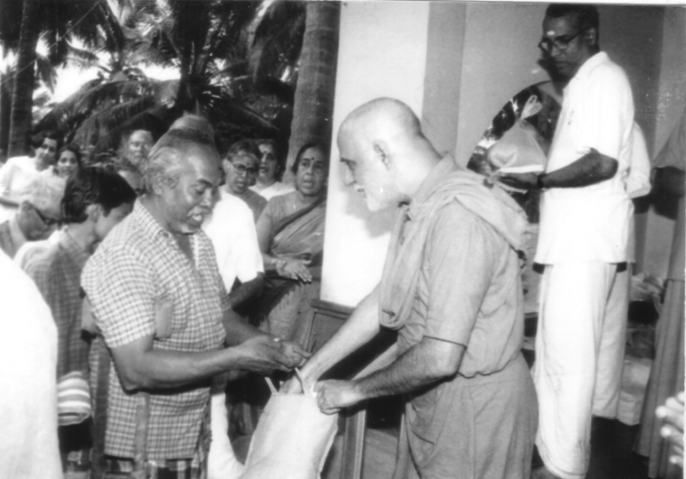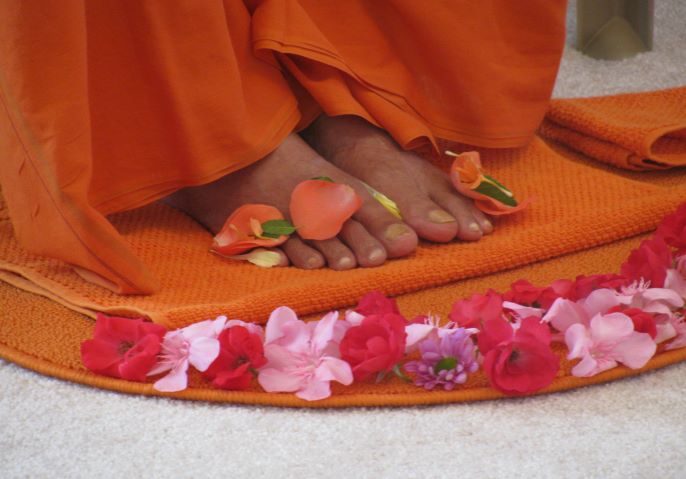Resources

Swami Bhoomananda Tirtha
01 – Bhagavad Gita – By Swami Bhoomananda Tirtha – Essence of Scriptures
1997 Views | 3 years agoThis talk series was delivered by Swami Bhoomananda Tirtha during the 2020 Gurupoornima Retreat at Narayanashrama Tapovanam, Kerala.
Swamiji explains that the great epic-Mahabharata, written by Vedavyasa, discusses the decline and fall of the Kuru dynasty. Bhagavad Gita is a part of Mahabharata and is a historic composition, says Swamiji.
Swamiji briefly describes the circumstances which led to the Kurukshetra war. Having come to the battlefield after thirteen years of intense preparation, the armies are stationed facing each other. It is at such a time that Arjuna asks Sri Krishna (his charioteer) to station the chariot in between both the armies. Seeing his kith and kin arrayed against him whom he had to slay to win the war, Arjuna crumbled. He could not muster the sufficient resolve and strength to fight the war.
This is the crisis of the human mind in every troublesome situation, says Swamiji. The fate and plight of the human mind are the same in every generation.
Quoting two verses from the 2nd chapter, Swamiji discusses the condition of Arjuna and the admonition of Sri Krishna. Krishna begins the warfield instruction and treats Arjuna’s mind and its distress. Krishna's message is not only for Arjuna but for every human being, says Swamiji.
#enlightenedliving #bhoomananda #globalsatsang
Website: www.bhoomananda.org/
Email: services@bhoomananda.org
Facebook: www.facebook.com/narayanashrama.tapovanam/
Pinterest: in.pinterest.com/bhoomanandafoundation/
Whatsapp: +91 8547960362
Subscribe to our newsletter: www.bhoomananda.org/#freeeservices-form
Publications: www.bhoomananda.org/store ( Email: bookstore@bhoomananda.org)
Handout: www.bhoomananda.org/event-handouts/ (Also in comments section)
About us:
Narayanashrama Tapovanam, an Ashram located in Thrissur, Kerala, embodies the unique tradition of Guru-shishya Parampara, disseminating Brahmavidya (Science of Self-knowledge) through regular classes, satsangs, and above all, through learning in the association of a realized spiritual master.
most popular

Swami Bhoomananda Tirtha
സുഖമരണം സാധിയ്ക്കുന്നതെങ്ങനെ? | Swami Bhoomananda Tirtha
- 50382 Views
- 2 months ago

Swami Bhoomananda Tirtha
148 – അയോധ്യയിലെ രാമക്ഷേത്രത്തിൽ നടന്ന പ്രാണപ്രതിഷ്ഠ | By Swami Bhoomananda Tirtha
- 45997 Views
- 1 year ago


Swami Bhoomananda Tirtha
01 – Vishnusahasranama – Swami Bhoomananda Tirtha – Genesis and Significance of Vishnusahasranama
- 42648 Views
- 11 years ago


 Add to Favorites
Add to Favorites Add to Playlist
Add to Playlist



















